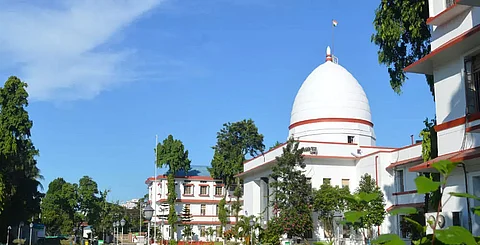
- Home
- Live Blog
- Breaking News
- Top Headlines
- Cities
- NE News
- Sentinel Media
- Sports
- Education
- Jobs

GUWAHATI: A division bench of the Gauhati High Court comprising Justice Michael Zothankhuma and Justice Mridul Kumar Kalita today acquitted five accused in the Dhemaji bomb blast on August 15, 2004, of all charges framed against them, giving them the benefit of the doubt.
As many as 18 people, mostly children, lost their lives in the blast that left several injured.
The High Court also set aside the impugned judgement of July 4, 2019, passed by the Trial Court in Sessions Case (127(DH)/2011).
On July 4, 2019, the Dhemaji District and Session Court sentenced Dipanjali Borgohain, Lila Gogoi, Jatin Dowari, and Muhi Handique to life imprisonment and Hemen Gogoi and Prashanta Bhuyan to four-year imprisonment. Barring that of Prashanta Bhuyan, the High Court pronounced the judgement on the criminal appeal of the other five accused today.
The High Court said, "Each fact must be proved individually, and only thereafter should the Court consider the total cumulative effect of all the proved facts, each one of which reinforces the conclusion of guilt. If the combined effect of all the facts taken together is conclusive in establishing the guilt of the accused, the conviction would be justified, even though it may be that one or more of these facts, by themselves, are not decisive. The circumstances proved should be such as to exclude every hypothesis except the one sought to be proved.
"But this does not mean that before the prosecution case succeeds in a case of circumstantial evidence alone, it must exclude each and every hypothesis suggested by the accused, however extravagant and fanciful it might be. It should also be kept in mind that suspicion over strong evidence cannot take the place of proof. The conviction cannot be based on speculation, conjunctures, or a broken chain of circumstantial evidence.
"There cannot be any missing links when considering the circumstantial evidence as a whole. Individual circumstances considered in isolation, which do not support the overall picture that is sought to be projected by the prosecution, cannot be forcefully stitched together to paint a picture showing the appellant to be guilty, though there may be suspicious circumstantial evidence. The prosecution cannot bring home the guilt of an accused without providing evidence proving the case beyond all reasonable doubt. The lack of evidence to bring home the guilt of the appellants is clear from the testimony of some of the witnesses and the statements given by them under Section 164 CrPC. It is the duty of the court to ensure that the evidence is legally admissible, and on considering the evidence adduced by the witnesses, we do not find any link to forge the chain of circumstantial evidence together. Further, as per the law laid down by the Supreme Court, when two views are possible, the view favourable to the accused has to be adopted. As such, we are of the view that the learned Trial Court has convicted the appellants without the prosecution being able to prove the charges against them beyond all reasonable doubt. As such, we do not find any alternative but to interfere with the findings of the learned Trial Court and the conviction of the appellants by the learned Trial Court".
Also Watch: